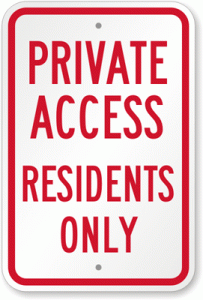
In 1994, Paul Anthony Leone was convicted of felony possession of marijuana in Virginia. This conviction stripped him of both his political rights and his right to possess firearms.
Years later, in 2012, Mr. Leone, now living in North Carolina, successfully applied to Governor McDonnell for a restoration of his political rights. Having done so, he then petitioned the Virginia Beach Circuit Court for a restoration of his firearm rights.
Over the objections of the Commonwealth’s Attorney the court granted his petition. The Commonwealth subsequently appealed and the Supreme Court of Virginia ultimately reversed the order on the grounds that the clear text of 18.2-308.2(C) only allows petitioners to “petition the circuit court of the jurisdiction in which he resides.”
Since Mr. Leone admittedly was no longer a resident of the Commonwealth, the court held in Commonwealth v. Leone, 286 Va. 147, 747 S.E.2d 809 (Va., 2013), that the Legislature had “ limited the territorial jurisdiction of circuit courts to adjudication of petitions for restoration filed by persons who reside within the territorial jurisdiction of the circuit court.”
In short, the court held that non-residents need not apply. At least not unless the Legislature were to revisit the issue.
During the 2015 legislative session, the Legislature did just that. Delegate Fowler introduced HB 1666 to allow non-residents of the Commonwealth who were originally convicted in a Virginia court to petition the circuit court in “the circuit court of any county or city where such person was last convicted of a felony or adjudicated delinquent of a disqualifying offense” for restoration of their firearm rights.
The bill passed the House and Senate and was signed by the Governor on March 16th, 2015 and it went into effect on July 1st, 2015.
Unfortunately, Delegate Fowler’s bill only addressed gun rights restoration in the circuit courts for those suffering from a prohibition based upon a felony conviction. However, that is not the only restoration mechanism in Virginia law.
Under sections 18.2-308.1:1, 18.2-308.1:2, and 18.2-308.1:3 of the Code of Virginia, those who have lost their right to possess firearms based upon different types of mental health issues may also petition for restoration of those rights in the general district court of the jurisdiction where they reside. As you can see, these sections suffer from the same jurisdictional language flaw as that which existed in § 18.2-308.2(C) prior to July 1, 2015.
This year I drafted a bill to make the same correction to these three sections that Delegate Fowler’s bill made to § 18.2-308.2(C) in 2015. My local delegate Israel O’Quinn was kind enough to carry the bill despite my bringing it to him at the very last moment. Thanks to his assistance, HB 2429 passed both the House of Delegates and the Senate with unanimous votes and was signed into law by the Governor on March 16th.
It will go into effect on July 1, 2017 and will allow non-residents whose mental health prohibition originated in Virginia to petition the general district court in the jurisdiction where their most recent mental health disqualifying event occurred.
You may be asking yourself why the anti-gun members of the House and Senate voted for a bill that can be categorized as pro-gun. I believe it is because this bill does nothing to change the broad discretion that judges have when evaluating such cases. It merely gives non-residents the ability to petition for a hearing on the matter. This bill is not pro-gun so much as it is pro-due process and I suspect that is how it was seen by even anti-gun legislators.
Having said that, gun rights restorations based upon mental health dis-qualifiers are granted in far fewer cases than those based upon felony convictions and I do not anticipate this bill changing that in the slightest. To maximize a petitioner’s chance of success, it will continue to be critical that they are represented by someone with a detailed knowledge of the process and the factors a judge will consider when making this important public safety decision.
If you are a Virginia resident or non-resident with a Virginia-based prohibition, I will be happy to speak to you about your chances for petitioning for the restoration of your rights in Virginia.






